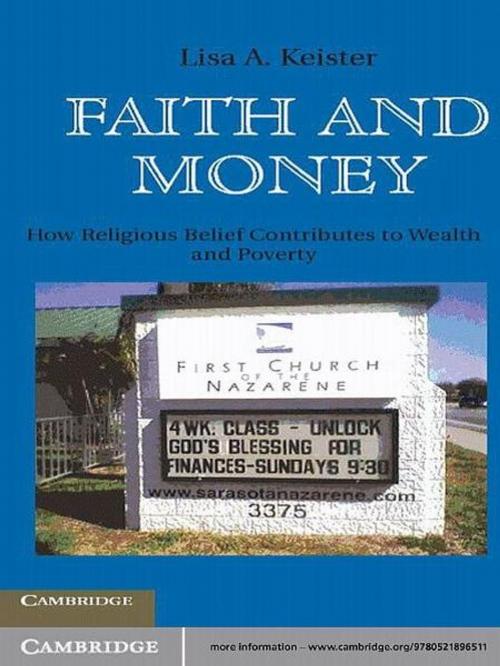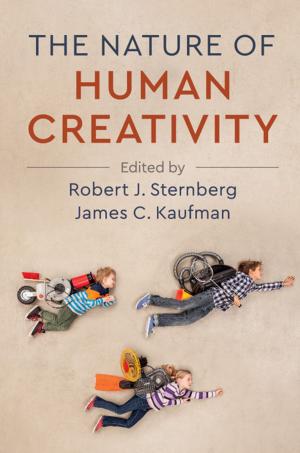Faith and Money
How Religion Contributes to Wealth and Poverty
Nonfiction, Social & Cultural Studies, Social Science, Sociology, Business & Finance| Author: | Lisa A. Keister | ISBN: | 9781139139793 |
| Publisher: | Cambridge University Press | Publication: | September 5, 2011 |
| Imprint: | Cambridge University Press | Language: | English |
| Author: | Lisa A. Keister |
| ISBN: | 9781139139793 |
| Publisher: | Cambridge University Press |
| Publication: | September 5, 2011 |
| Imprint: | Cambridge University Press |
| Language: | English |
For those who own it, wealth can have extraordinary advantages. High levels of wealth can enhance educational attainment, create occupational opportunities, generate social influence and provide a buffer against financial emergencies. Even a small amount of savings can improve security, mitigate the effects of job loss and other financial setbacks and improve well-being dramatically. Although the benefits of wealth are significant, they are not enjoyed uniformly throughout the United States. In the United States, because religion is an important part of cultural orientation, religious beliefs should affect material well-being. This book explores the way religious orientations and beliefs affect Americans' incomes, savings and net worth.
For those who own it, wealth can have extraordinary advantages. High levels of wealth can enhance educational attainment, create occupational opportunities, generate social influence and provide a buffer against financial emergencies. Even a small amount of savings can improve security, mitigate the effects of job loss and other financial setbacks and improve well-being dramatically. Although the benefits of wealth are significant, they are not enjoyed uniformly throughout the United States. In the United States, because religion is an important part of cultural orientation, religious beliefs should affect material well-being. This book explores the way religious orientations and beliefs affect Americans' incomes, savings and net worth.















